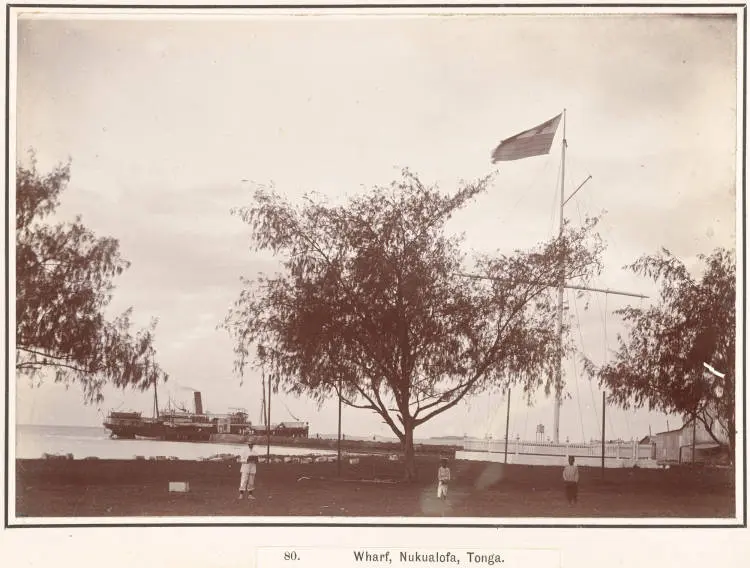King George of Tonga
King George of Tonga. Semi-formal outdoor portrait of King George of Tonga, 86 years old, in front of the palace at Neiafu. Fecha 26 de julio de 1884
Autor Burton Brothers
In 1884, King George of Tonga, also known as King George Tupou I, was still reigning as the monarch of the Kingdom of Tonga. He had been the first king of the unified Kingdom of Tonga, a role he assumed in 1845 after successfully consolidating the various islands and chiefs of Tonga under his rule.
King George Tupou I, born in 1797, was a highly influential figure in the history of Tonga and the Pacific Islands. He modernized his kingdom and was an advocate for education, the development of infrastructure, and the promotion of Christianity in Tonga. His reign was marked by significant social, political, and economic reforms that shaped the future of Tonga.
By 1884, King George Tupou I had firmly established Tonga as a sovereign state and had navigated the complexities of maintaining its independence in a period of growing European colonial influence in the Pacific. Tonga was one of the few Polynesian kingdoms to remain independent during this era, partly due to the astute diplomacy and leadership of King George.
In 1884, Tonga faced external pressures from European powers, especially the British Empire, which was expanding its influence in the Pacific. King George Tupou I skillfully navigated these challenges by maintaining diplomatic relations with Britain and other European powers while asserting the sovereignty of Tonga. His leadership helped Tonga avoid becoming a colony, which many other Pacific islands fell victim to during the 19th century.
At the same time, King George Tupou I worked on internal reforms. He codified Tongan laws, established a written constitution, and worked to promote education and literacy, which helped to modernize the country. He also encouraged trade and worked on the improvement of agriculture, which included introducing new crops and modernizing farming techniques.
By 1884, King George Tupou I was seen as a key figure in the Pacific, respected not only by his people but also by European powers for his wisdom and diplomacy. His reign lasted until his death in 1893, and his legacy continues to have a profound impact on the Kingdom of Tonga and its development as an independent nation.
Comments
Contributed by

OldPik
January 7, 2024
Source
External link to sourceHave old photos?
Share your historical photographs and help preserve our collective memory.
Upload pictures









No comment yet, be the first to comment...